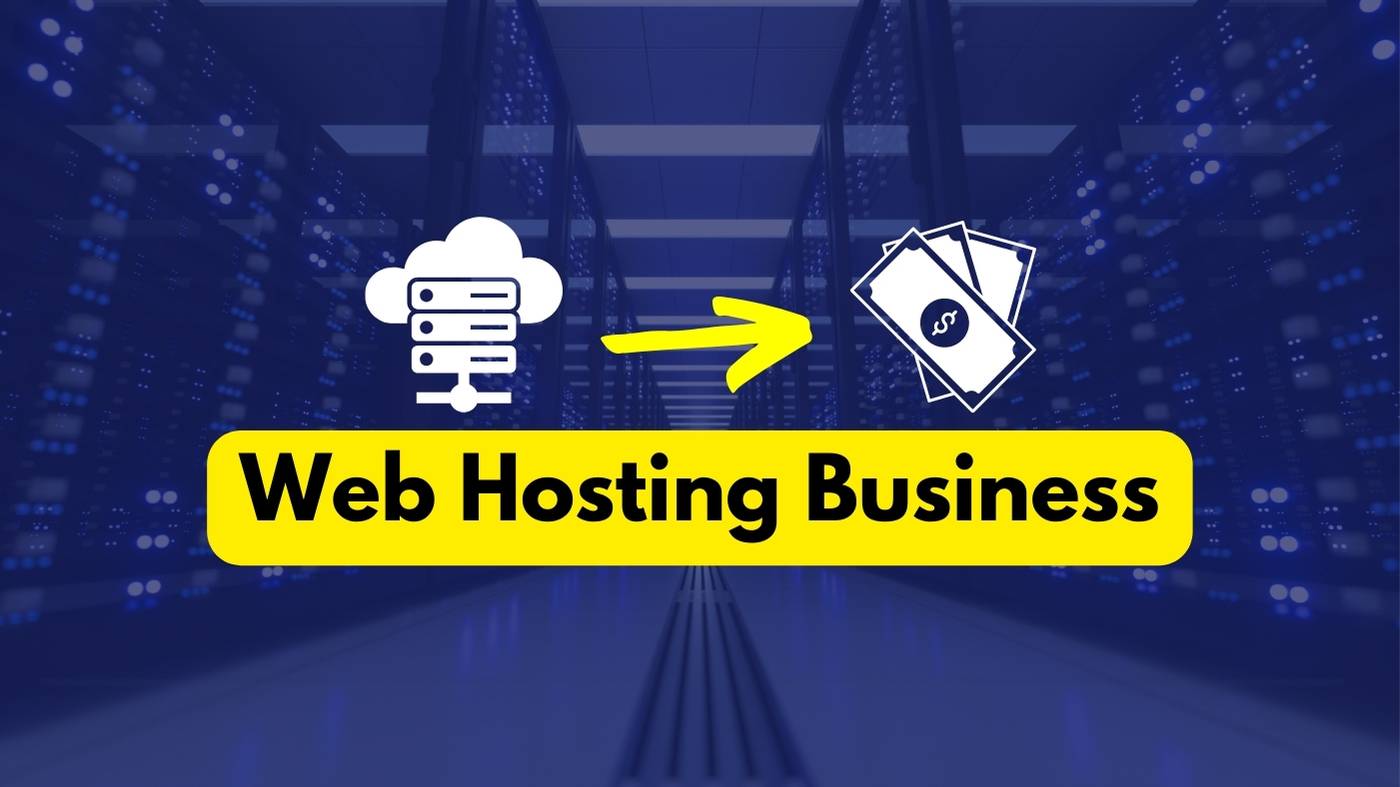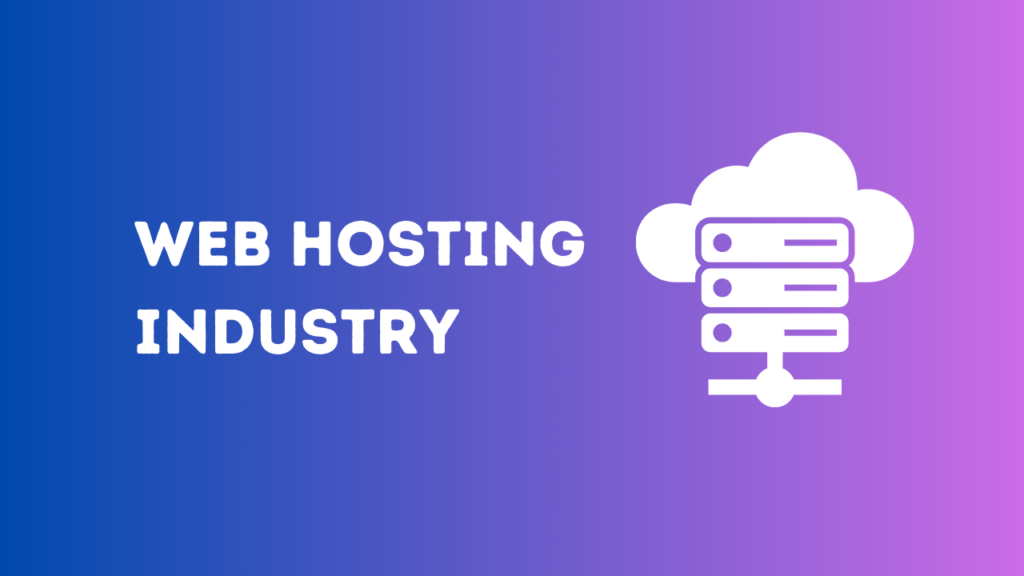How to Start Your Own Web Hosting Business?

Starting your own web hosting business can be a rewarding venture in the digital age. As the demand for websites and online presence continues to grow, web hosting services play a crucial role in enabling individuals and businesses to establish their online presence.
This article will guide you through a step-by-step process on how to start your own web hosting business. From planning and infrastructure setup to marketing and customer management, we will cover all the essential aspects to help you launch a successful web hosting venture.
1. Understand the Web Hosting Industry

1.1 What is Web Hosting?
Web hosting refers to the service of providing storage space and server resources to host websites and make them accessible on the Internet. Web hosting companies own and operate servers that store website files and deliver them to users when they request to access a particular website.
1.2 Types of Web Hosting Services
There are various types of web hosting services available, including shared hosting, virtual private servers (VPS), dedicated servers, and cloud hosting. Shared hosting involves multiple websites sharing server resources, while VPS and dedicated servers offer more control and resources to individual websites. Cloud hosting utilizes a network of servers to provide scalable and flexible hosting solutions.
| Shared Hosting | In shared hosting, multiple websites are hosted on a single server and share its resources such as CPU, RAM, and disk space. It is cost-effective and suitable for small websites with low to moderate traffic. |
| Virtual Private Servers (VPS) | VPS hosting provides a virtualized environment where each website resides in its own dedicated space on a shared server. It offers more control, resources, and scalability compared to shared hosting, making it ideal for websites with higher traffic and resource requirements. |
| Dedicated Servers | With dedicated server hosting, an entire physical server is dedicated to a single website or client. This provides the highest level of control, performance, and security. It is suitable for large websites with high traffic volumes and resource-intensive applications. |
| Cloud Hosting | Cloud hosting utilizes a network of interconnected servers to distribute resources and ensure high availability. It offers scalability, flexibility, and redundancy, making it suitable for websites with fluctuating traffic and a need for maximum uptime. |
2. Define Your Business Model

2.1 Determine Your Target Market
Before starting a web hosting business, it’s essential to define your target market. Identify the specific audience or industry segment you want to cater to. This could be small businesses, e-commerce websites, bloggers, or any other niche.
2.2 Choose Your Hosting Niche
Consider specializing in a specific hosting niche to differentiate yourself from competitors. This could be offering managed WordPress hosting, reseller hosting for agencies, or specialized hosting for specific applications or industries.
3. Create a Business Plan

A well-thought-out business plan is crucial for the success of your web hosting business. It will serve as a roadmap for your operations and help you make informed decisions. Here are some key elements to include:
3.1 Set Your Goals and Objectives
Define your short-term and long-term goals for your web hosting business. These goals could include acquiring a certain number of customers, achieving a specific revenue target, or expanding into new markets.
3.2 Plan Your Service Offerings
Decide on the types of hosting services you will offer. This could range from shared hosting plans to dedicated servers and specialized hosting solutions. Determine the features and resources included in each package.
3.3 Consider Pricing and Revenue Models
Develop a pricing structure that aligns with your target market and service offerings. Consider factors such as server costs, maintenance, customer support, and profit margins. Choose a revenue model, such as monthly subscriptions or annual contracts.
4. Establish Your Infrastructure

To provide reliable hosting services, you need to set up a robust infrastructure. This involves selecting reliable hosting providers and configuring your server environment.
4.1 Select Reliable Hosting Providers
Research and choose reputable hosting providers that offer high-quality servers, excellent uptime, and reliable technical support. Consider factors like server location, scalability options, and security measures.
4.2 Set Up Your Server Environment
Depending on your chosen hosting niche, you will need to set up the appropriate server environment. This could involve configuring shared hosting platforms, virtual private servers (VPS), or dedicated servers. Install necessary software and security measures to ensure optimal performance and protection against cyber threats.
5. Build Your Website and Branding
Your website will serve as the primary point of contact for potential customers. It should be professionally designed, user-friendly, and reflect your brand identity.
5.1 Register a Domain Name
Choose a domain name that is relevant to your business and easy to remember. Register the domain through a reliable domain registrar.
5.2 Design Your Website
Design a visually appealing website that showcases your services and features. Ensure that the website is mobile-friendly, as a significant portion of internet traffic comes from mobile devices.
5.3 Develop Your Brand Identity
Create a strong brand identity that resonates with your target market. This includes designing a logo, selecting a color palette, and crafting a unique brand message that sets you apart from competitors.
6. Set Up Billing and Support Systems
To streamline your operations, you need to implement billing and customer support systems.
6.1 Choose a Billing System
Select a billing system or software that enables you to manage customer subscriptions, automate invoicing, and process payments securely. Popular options include WHMCS, Blesta, and HostBill.
6.2 Implement Customer Support Solutions
Choose a customer support system that allows you to efficiently handle customer inquiries and issues. This may include setting up a ticketing system, live chat support, and a knowledge base to provide self-help resources for customers.
7. Implement Marketing Strategies
To attract customers and promote your web hosting business, you need to implement effective marketing strategies.
7.1 Develop Your Marketing Plan
Outline your marketing goals and strategies. Identify the best channels to reach your target market and create a content calendar for consistent marketing efforts.
7.2 Utilize Digital Marketing Channels
Utilize search engine optimization (SEO) techniques to improve your website’s visibility in search engine results. Engage with your target audience through social media marketing, content marketing, and email marketing campaigns.
7.3 Build Partnerships and Affiliate Programs
Collaborate with complementary businesses, such as web designers or digital agencies, to offer mutual referrals and create strategic partnerships. Consider implementing an affiliate program to incentivize individuals or businesses to refer customers to your hosting services.
8. Launch Your Web Hosting Business
Once your infrastructure is in place and your marketing strategies are ready, it’s time to launch your web hosting business.
8.1 Test Your Infrastructure and Services
Thoroughly test your server infrastructure, website, and billing systems to ensure everything is functioning correctly. Perform load testing to assess the performance and stability of your servers.
8.2 Promote Your Business
Execute your marketing plan to generate awareness and attract customers. Utilize online advertising, social media promotion, and content marketing to reach your target audience.
8.3 Onboard Your First Customers
Provide a seamless onboarding experience for your first customers. Ensure that they receive clear instructions on how to set up their hosting accounts and make use of your services. Offer personalized support during the initial stages to establish a positive customer relationship.
9. Provide Excellent Customer Support
To retain customers and maintain a positive reputation, focus on delivering exceptional customer support.
9.1 Offer 24/7 Technical Support
Ensure that your customers can reach you for technical assistance at any time. Consider providing round-the-clock support through multiple channels, such as live chat, email, and phone.
9.2 Create a Knowledge Base and FAQs
Develop a comprehensive knowledge base and FAQs section on your website to address common customer queries. This will empower customers to find answers to their questions quickly and reduce the need for direct support.
9.3 Regularly Communicate with Customers
Stay in touch with your customers through regular updates, newsletters, and personalized communications. Inform them about new features, security updates, and any upcoming maintenance schedules.
10. Scale and Grow Your Business
As your web hosting business expands, you need to scale your operations and explore growth opportunities.
10.1 Monitor and Optimize Your Infrastructure
Regularly monitor the performance of your server infrastructure and make necessary upgrades or adjustments to meet the growing demands of your customers. Optimize your resources to ensure efficient use of server capacity.
10.2 Expand Your Service Offerings
Consider expanding your service offerings to cater to evolving customer needs. This could involve introducing new hosting plans, adding specialized hosting solutions, or offering additional services like domain registration or website design.
10.3 Explore New Marketing Opportunities
Continuously evaluate your marketing strategies and explore new opportunities to reach a wider audience. This may include collaborations with influencers, attending industry conferences, or leveraging emerging digital marketing trends.
Final words
Starting your own web hosting business requires careful planning, technical expertise, and effective marketing. By following the step-by-step process outlined in this article, you can lay a strong foundation for your web hosting venture. Remember to prioritize customer satisfaction, invest in reliable infrastructure, and continuously adapt to industry trends to stay competitive and thrive in the web hosting market.
FAQs (Frequently Asked Questions)
1. How much technical knowledge do I need to start a web hosting business?
While technical knowledge is beneficial, you can start a web hosting business even with limited technical expertise. Partnering with a reliable hosting provider and hiring skilled technical staff can help you manage the technical aspects of your business.
2. How much does it cost to start a web hosting business?
The cost of starting a web hosting business can vary depending on factors such as infrastructure setup, marketing budget, and staffing needs. It is advisable to create a detailed business plan to estimate the costs accurately.
3. Can I offer additional services along with web hosting?
Yes, offering additional services such as domain registration, SSL certificates, website design, and development can provide added value to your customers and increase your revenue streams.
4. How can I differentiate my web hosting services from competitors?
To differentiate your web hosting services, focus on factors such as reliability, performance, customer support, pricing, and unique features. Understand your target market’s needs and provide tailored solutions that address their specific requirements.
5. How long does it take to see success in a web hosting business?
The time it takes to achieve success in a web hosting business can vary. It depends on factors like market conditions, competition, marketing efforts, and customer acquisition. Building a strong reputation and customer base takes time, so patience and persistence are key.


